#EVSales
Report: Tesla Layoffs Commence in Earnest
Tesla is undergoing layoffs, with Elon Musk confirming the loss of two senior executives and plans to reduce overhead by cutting staff. This has been relatively common within the automotive sector, with legacy manufacturers having engaged in rolling layoffs for years as a way to offset development costs and maximize profits. But Tesla has long been viewed as the vanguard of electrification and the brand most other EV manufacturers hope to embody due to its meteoric rise.
Fisker's Troubles Deepen as Thousands of Reservation Holders Cancel
Fisker’s on the ropes, but hits keep on coming. The upstart automaker recently warned that it could face bankruptcy and said that its negotiations with another automaker for a potential investment had fallen through. Business Insider recently reported on leaked documents that show Fisker’s troubles are deepening, as the EV maker has seen tens of thousands of order cancellations since its troubles became glaringly public.
Ford Slashed the Mach-E's Price Tag and Saw an Immediate Uptick in Sales
Disappointing EV demand can be blamed on several factors, ranging from the toxic political situation in the U.S. to concerns about driving range and charging. One factor that is coming into clear focus is pricing, as Ford recently found out with the Mustang Mach-E. In response to flagging demand, the automaker cut prices on the electric SUV and has seen an uptick in sales as a result, showing that cost remains a significant hurdle for many prospective buyers.
Report: Rivian to Lay Off 10 Percent of Its Workforce
Rivian customers love their vehicles and the brand, helping it achieve a top spot among premium brand owner satisfaction, but that hasn’t saved the automaker from an overall EV market that has grown less enthusiastically than hoped. The company recently announced that it would lay off 10 percent of its workforce, citing slower-than-expected sales and rising interest rates as being significant headwinds.
California EV Sales Dropped Two Quarters in a Row Last Year
Automakers have seen wavering demand for EVs across the country, but California has always been the stronghold for electric adoption and infrastructure. Even so, the tides turned late last year, which could signal slower times ahead for the industry.
Ford Slashing F-150 Lightning Production and Laying Off Most of the People Building It
After facing significant challenges ramping up production and meeting customer demand for the F-150 Lightning, Ford recently announced layoffs that will drastically cut volume at its electric vehicle factory in Michigan.
Most Ford Dealers Sign on for Big EV Investments
The transition to EVs is a big deal, not just for automakers but for their dealers. Training, product marketing, and service are all enormous obstacles for dealers to overcome to sell and support electric vehicles effectively. General Motors offered to buy out Buick dealers that weren’t willing to put in the time and, more importantly, money. Ford laid out similar requirements to its dealers, asking for a financial investment of more than $1 million in some cases, and CEO Jim Farley recently touted the program’s success.
Will Tesla Expand in China, Or Head the Export Route?
What does the future hold for Tesla in China? Expansion, or exports?
That’s the question being asked by an Automotive News story today.
China Is Back, Baby! Quarterly Auto Sales up First Time in Two Years
With global economies suffering from pandemic-related lockdowns, there’s been just one question burning in the minds of economists: ‘When will Chinese automotive sales finally rebound so that the industry can once again feel comfortable enough to keep pouring resources into Central Asia?’
Now, apparently.
China’s car market just recorded its first quarter of year-over-year sales growth in two years, with last month’s volume rising 12.8 percent (vs 2019) to 2.57 million units, according to the China Passenger Car Association (CPCA). While its always wise to keep in mind that the nation has a history of obfuscating figures that might paint it in a bad light, CPCA has been slightly more consistent in its reporting than the China Association of Automobile Manufacturers (CAAM). Both outlets also have a tenancy to showcase blind optimism for the local economy, but there appears to have been good reason for that over the last five months.
Colorado Mandates Electric Vehicle Sales, State Dealers Association Angry
The State of Colorado will be the next territory in the United States to join California in embracing electric vehicles. Democratic Governor Jared Polis has signed an executive order (his very first) proposing that the zero-emission vehicle rule be enacted no later than May of 2019. The rule would require automakers to sell more electric cars within the state each year until it reaches utopian status.
However, that could still be decades away. Thus far, Polis has only asked the state’s Department of Public Health and Environment to propose new rules to the Air Quality Control Commission over the coming months. As of now, there are no official rules stipulating how many EVs need to be sold every year. And California, which started is ZEV program years ago, estimates electric vehicles will account for between 8 and 9 percent of all new car sales within the state by 2025.
Please Stop: Toyota Design Head Envisions Future Without Mass-market Automobiles
It’s starting to feel like people in the automotive industry simply cannot help but blurt out ludicrous claims involving a hypothetical future nobody on the outside seems to care about. These people, in charge of the the automobile’s ultimate form, appear to be so singularly obsessed with the vague concept of “mobility” that they can’t imagine any other alternative.
This week’s example came from Simon Humphries, the new general manager of Toyota’s advanced R&D, who mused about a tomorrow that didn’t need mass-market models. However, we’re not satisfied to condemn the design chief. Media outlets deserve a share of the blame for promoting these concepts without much logical backing.
The Chevrolet Bolt Is Now Far More Popular Than the Chevrolet Volt
If plug-in hybrids were meant to function as a stop-gap between ICE-powered cars and fully electric cars, it may be time to consider Chevrolet gapless.
The Chevrolet Volt appeared in first-gen form in late 2010. By 2016, with the arrival of a second-generation edition, Volt sales climbed to record levels in the United States, albeit still not at the level GM originally hoped to see.
The Volt was and is a plug-in hybrid, an electric car with a range-extending gas-powered engine.
But with nationwide availability of the Chevrolet Bolt — change that V to a B for pure electricity — we’re now watching as Chevrolet Volt sales tumble. It turns out General Motors now has far more U.S. demand for its electric car than its ICE-accompanying electric car.
Seemingly Every Automotive Headline Includes Electric This or That, but What's the State of Electric Vehicle Market Share in America?
You can forget the GM EV1 and the Toyota RAV4 EV. The car that truly attempted to bring electric cars into the mainstream was the 2011 Nissan Leaf.
It didn’t. U.S. Leaf sales, never reaching any great heights, plunged after its fourth full model year, falling by more than half between 2014 and 2016.
There’s a thoroughly updated second-gen Nissan Leaf on its way, destined to hit U.S. dealers early in 2018. But during the first-gen Leaf’s tenure, the Nissan was joined by a broad array of electric cars, from a handful of Teslas to the Chevrolet Bolt, Volkswagen e-Golf, Kia Soul EV, BMW i3, and Hyundai Ioniq, and all of these cars together have combined to quintuple U.S. electric vehicle market share over the last half-decade.
Only 0.1 percent of the new vehicles sold in America in 2012 were pure EVs. That figure has risen, very slowly, to 0.5 percent through the first eight months of 2017 while the number of available nameplates has more than doubled.
Perspective? Ford grew its F-Series’ share of the overall U.S. new vehicle market from 4.5 percent to 5.1 percent during the same period.
Nationwide Availability Means Chevrolet Bolt Has Outsold Chevrolet Volt Two Months Running
August 2017 marked the second consecutive month in which the Chevrolet Bolt, GM’s all-electric hatchback, generated more U.S. sales than the Chevrolet Volt, GM’s range-extended electric liftback.
Now available across America, the Chevrolet Bolt produced its best sales month to date in August.
The Chevrolet Volt, meanwhile, suffered its fifth consecutive month of decline.
Bolt > Volt?



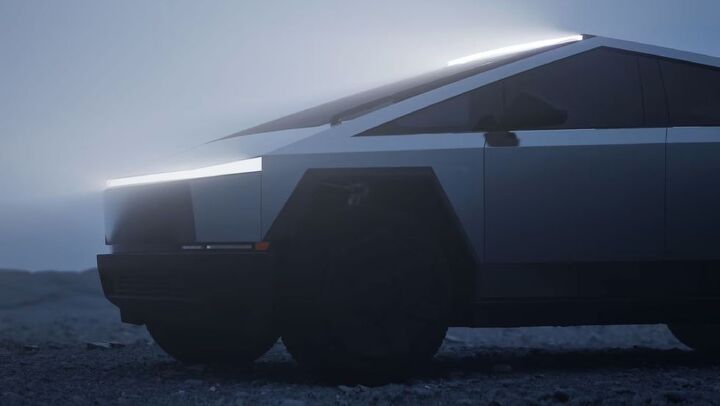
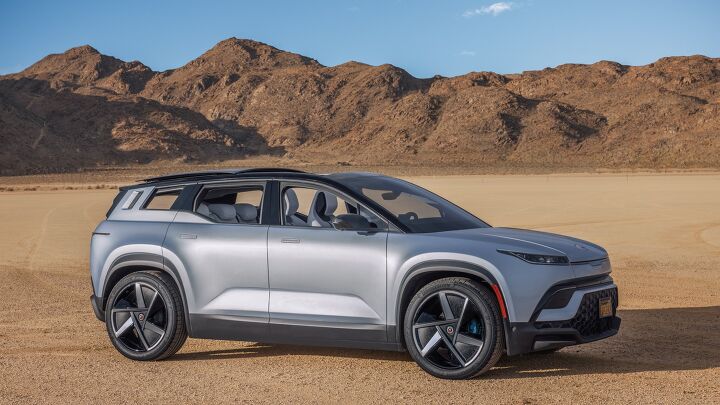
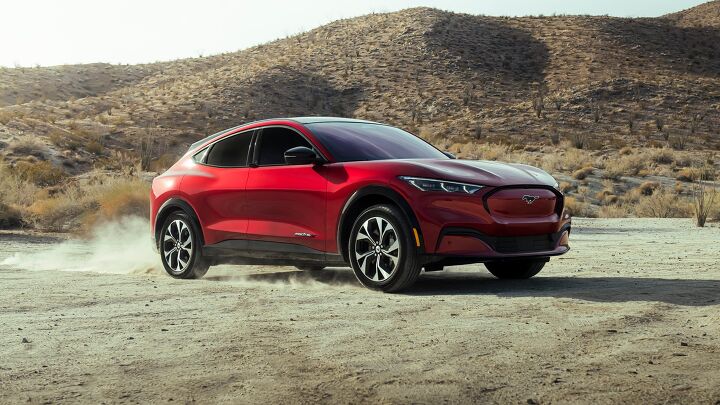


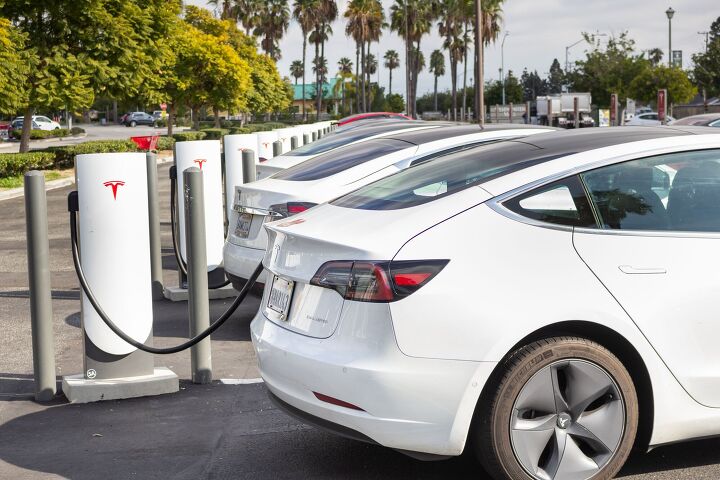
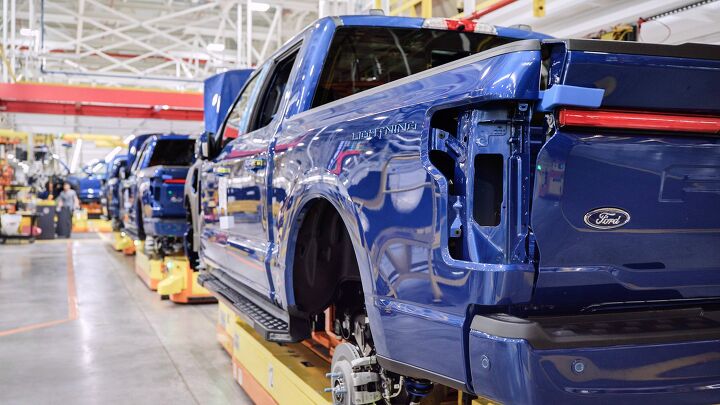
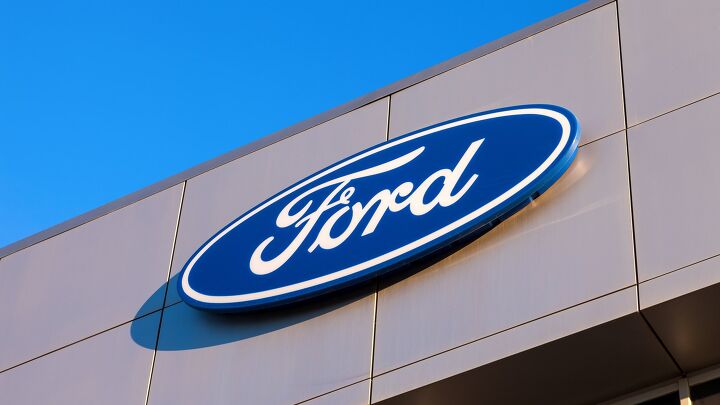
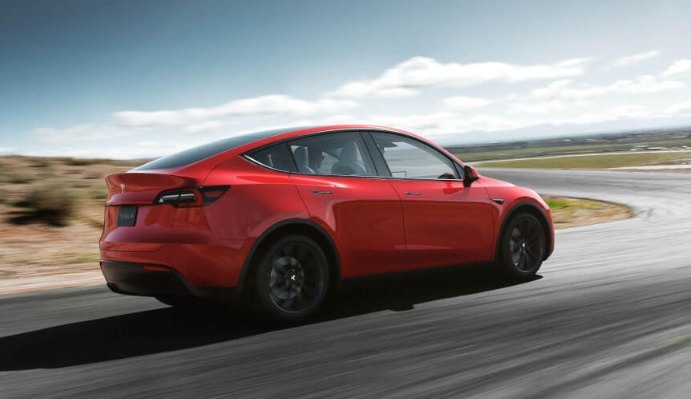

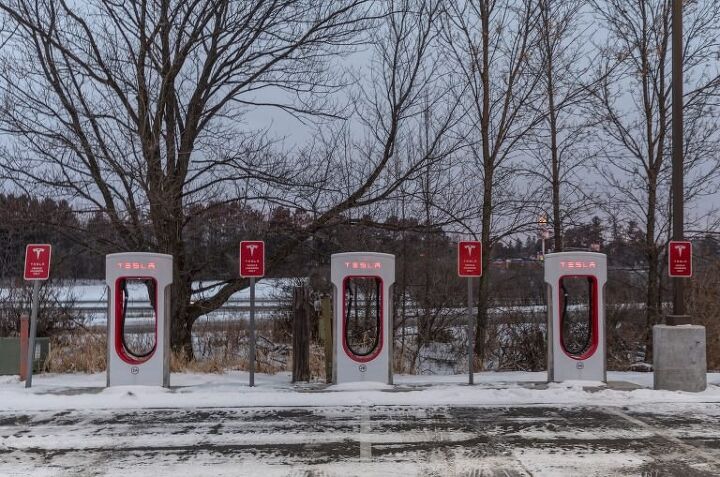

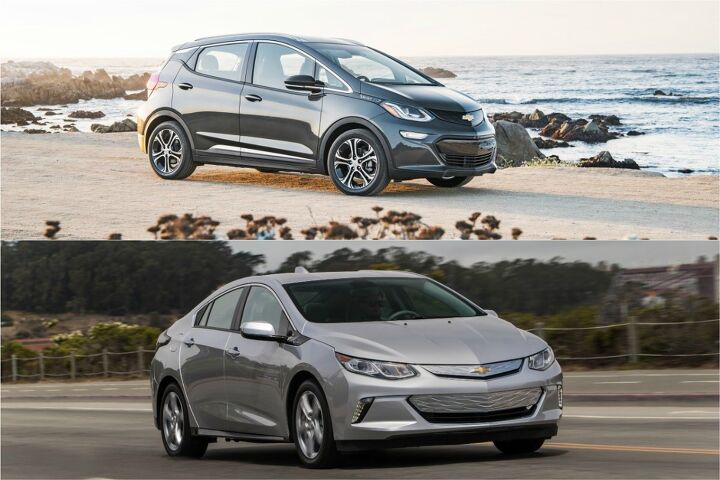
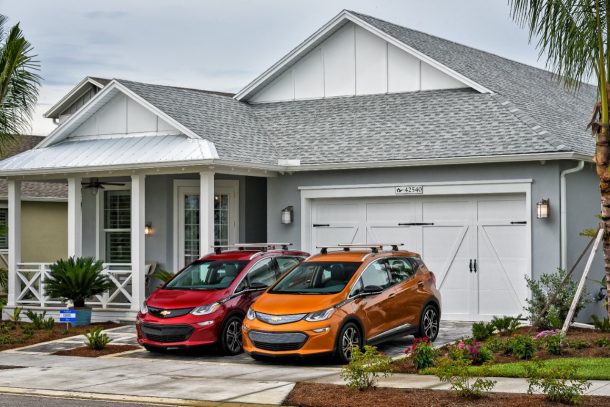
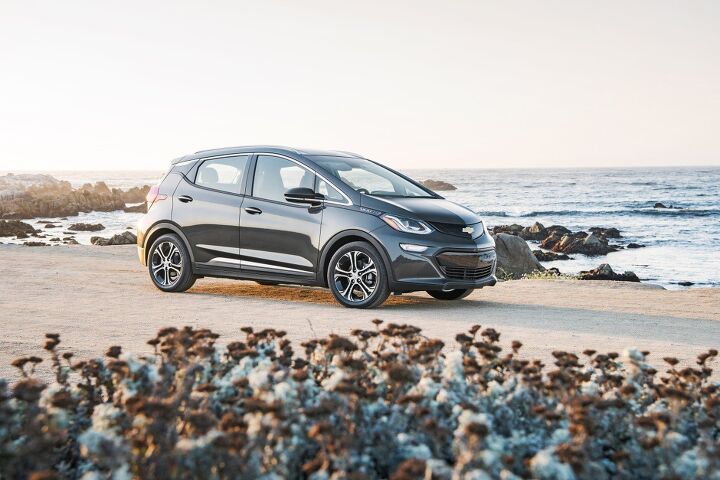












Recent Comments